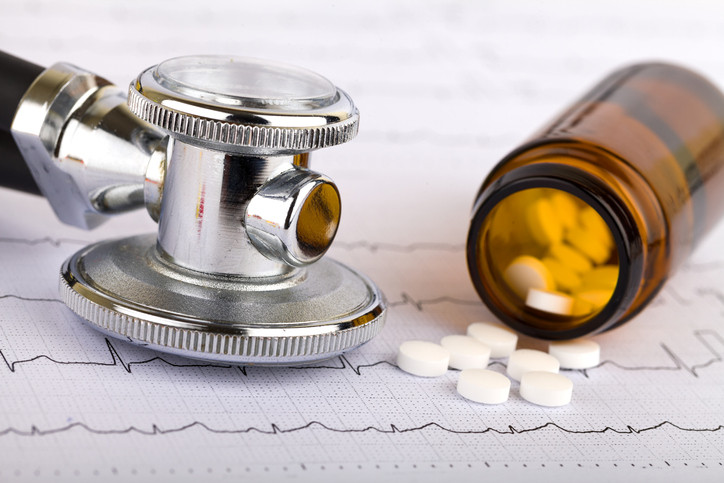
5 timeless habits for better health

What are the symptoms of prostate cancer?

Is your breakfast cereal healthy?

When pain signals an emergency: Symptoms you should never ignore

Does exercise give you energy?

Acupuncture for pain relief: How it works and what to expect

How to avoid jet lag: Tips for staying alert when you travel

Biofeedback therapy: How it works and how it can help relieve pain

Best vitamins and minerals for energy

Should you take probiotics with antibiotics?
Heart Health Archive
Articles
Are there benefits of cardiac catheterization for stable coronary artery disease?
In patients with acute coronary syndrome, studies have shown that cardiac catheterization can decrease heart attacks and improve survival. A recent study attempted to determine if the procedure would have comparable results in people with a more stable form of coronary artery disease.
And now for some good news on health
Good news on health –– which seems hard to come by right now –– includes declines in the rates of six out of 10 major causes of death in the United States.
Go to the hospital if you need emergency care, even in the era of COVID-19
Emergency departments have seen a decline in people seeking care, even for serious conditions such as strokes and heart attacks, out of fear of contracting COVID-19. But delaying treatment in such situations could worsen the outcome, and precautions have been taken to ensure the safety of all patients.
Regular tea drinking linked to better heart health
Research we're watching
Sipping a cup of tea at least every other day or so may be good for your heart, according to a study published online January 9 by the European Journal of Preventive Cardiology.
The study included data from more than 100,000 Chinese adults who were part of a long-term health study. The participants provided health and behavioral information, including how much tea they drank. The follow-up lasted an average of seven years.
Taking heart medications? Don’t forgo healthy habits
Research we're watching
People may let healthy eating and exercise habits slide after starting prescription heart medications, according to a study in the February 18 Journal of the American Heart Association.
The study involved more than 40,000 Finnish people whose average age was 52. From 2000 to 2013, researchers surveyed them at least twice every four years about their body mass index and their exercise, smoking, and drinking habits. They used pharmacy records to track if the participants began taking blood pressure drugs or statins.
How accurate are wearable heart rate monitors?
Research we're watching
Smart watches and wrist-worn fitness trackers that estimate your heart rate appear to be reliable in people with a range of different skin tones. But their accuracy may vary during different types of everyday activities, a new study finds.
Researchers recruited 53 people with different skin tones to test six different devices, which work by measuring changes in blood flow through the skin using a special sensor. The volunteers also wore electrocardiogram patches (which provide a gold-standard heart rate measurement) while they did different activities: sitting still, breathing deeply, walking, and typing.
Reducing alcohol intake lowers risk of irregular heartbeats
In the journals
Moderate and heavy drinkers with atrial fibrillation (afib), a quivering or irregular heartbeat, can reduce their episodes by cutting out most alcohol, says a study published Jan. 2, 2020, in The New England Journal of Medicine.
Afib symptoms include weakness, shortness of breath, and palpitations, and alcohol is often cited as a common trigger. Afib is important not only because of the symptoms it may cause but it also increases your risk of stroke.
What does an enlarged atrium mean?
Ask the doctor
Q. I recently had an echocardiogram because my doctor heard a murmur, and I was told that my heart valves and heart function were both normal. But when I looked at the report, it indicated that I had an enlarged left atrium. What does that mean?
A. The left atrium is one of your heart's four chambers. Located in the upper half of the heart on the left side of your body, it receives freshly oxygenated blood from your lungs. This blood then surges down through the mitral valve into the left ventricle (the lower left chamber of the heart). Then, the blood travels up through the aortic valve and finally out to supply the body with oxygen.
Can stronger muscles pump up your heart health?
Strength training may be just as good as aerobic activity for reducing cardiovascular risk.
Any type of movement that makes your heart work harder than usual — brisk walking, dancing, or cycling — will benefit your heart health. But many people don't realize that targeted exercises to strengthen muscles throughout your body may also help stave off heart disease.
"In the past, strong muscles were considered beneficial mainly from a functional standpoint — that is, they make tasks such as carrying groceries and doing laundry easier," says Dr. I-Min Lee, a professor of medicine at Harvard Medical School who studies the role of physical activity in disease prevention. Those perks are particularly important as people age.
Understanding sudden cardiac arrest
Heart attacks are responsible for most cases of cardiac arrest. Know the warning signs—and what to if you witness a cardiac arrest.
Recently, a Harvard Heart Letter reader sent us an email asking about sudden cardiac arrest. This much-feared event occurs when the heart abruptly and unexpectedly stops beating. Each year, nearly 380,000 people in the United States experience cardiac arrest, and only about 10% survive.
"What are the causes and contributing factors? Are there early symptoms before the arrest occurs? And can it occur in a seemingly healthy middle-aged person?" she asked. Sudden cardiac arrest remains challenging to both predict and prevent. But there are definitely ways to lower your risk — and things that everyone should know (see "Recognize and react to sudden cardiac arrest").

5 timeless habits for better health

What are the symptoms of prostate cancer?

Is your breakfast cereal healthy?

When pain signals an emergency: Symptoms you should never ignore

Does exercise give you energy?

Acupuncture for pain relief: How it works and what to expect

How to avoid jet lag: Tips for staying alert when you travel

Biofeedback therapy: How it works and how it can help relieve pain

Best vitamins and minerals for energy

Should you take probiotics with antibiotics?
Free Healthbeat Signup
Get the latest in health news delivered to your inbox!
Sign Up











